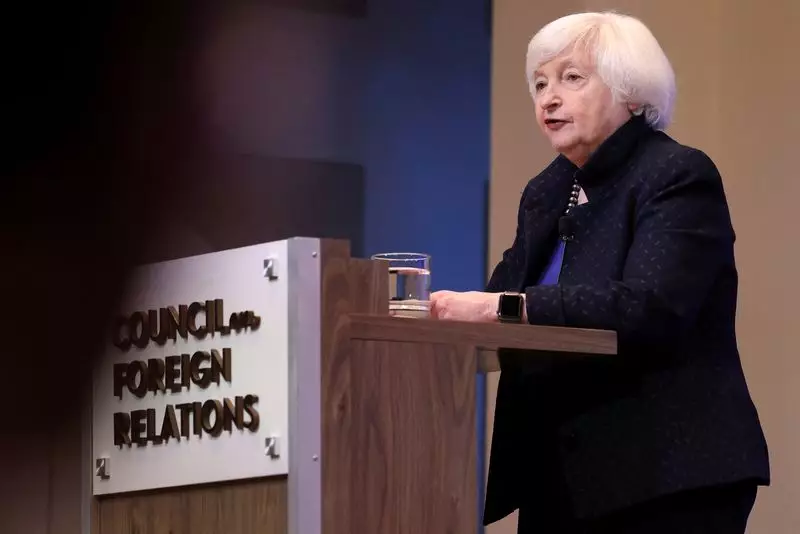In recent years, calls for economic isolationism, particularly from political figures such as former President Donald Trump, have sparked substantial debate regarding America’s economic future and its place in the global market. U.S. Treasury Secretary Janet Yellen is set to articulate a powerful counter-argument, contending that such protective measures would be fundamentally detrimental to both American consumers and businesses. Her statements challenge the allure of high tariffs as a remedy for economic challenges, emphasizing the importance of collaborative global trade to foster growth and stability.
Trump’s proposals for steep tariff increases, including a blanket 10% to 20% tariff on most imports and eye-popping rates for imports from China, promise to shield American industries from foreign competition. However, layered within these promises lies a simplistic understanding of economics. Yellen critiques this perspective, arguing that such sweeping tariffs would not only inflate prices for everyday American families but also diminish the global competitiveness of U.S. companies. This raises the critical question: can isolationist policies truly protect domestic jobs and industries, or do they merely mask deeper systemic issues within the economy?
Yellen’s assertion that a unilateral approach to trade is “deeply misguided” resonates with economic principles that highlight interconnectedness in our global economy. Isolationist trends might play well politically, but they overlook the potential economic gains from international partnerships. The dynamics of supply and demand extend beyond national borders; thus, tariffs might shield certain industries in the short term but risk long-term repercussions such as higher costs for consumers and the erosion of international market share for U.S. companies.
Yellen argued for a balanced economic relationship with China, asserting that maintaining trade ties can yield significant advantages for American workers and businesses. While acknowledging the challenges stemming from China’s market access barriers and unfair business practices, she emphasizes the importance of remaining engaged rather than severing connections altogether. This perspective aligns with current economic realities, where a retreat into protectionism may jeopardize American competitiveness.
Moreover, Yellen’s recognition of President Joe Biden’s strategic tariff increases on specific Chinese imports demonstrates a nuanced approach to economic policy. Rather than blanket tariffs that could stifle growth, targeted measures can play a role in addressing particular economic threats while still allowing for broader trade. This indicates a shift towards a more measured strategy that retains focus on fair competition while recognizing the challenges posed by aggressive foreign policies.
Janet Yellen’s remarks underline the significance of international cooperation in facing contemporary challenges, such as geopolitical tensions with Russia and the urgent need for supply chain resiliency. She posits that a strategy focused solely on national advantage diminishes America’s ability to foster alliances, enforce democratic values worldwide, and simply navigate the complexities of a globalized economy.
The unprecedented challenges of the 21st century, particularly in light of global crises like the COVID-19 pandemic, highlight the vulnerability of nations that retreat into isolationism. These crises underscore the necessity for a coordinated global response, which can be undermined by self-imposed economic barriers.
Yellen’s perspective presents a compelling case against economic isolationism. The notion that America can “go it alone” in a deeply interconnected global economy poses significant risks. Instead, fostering a healthy, competitive economic environment through strategic partnerships, fair trade practices, and selective tariffs offers a pathway toward sustainable growth. The challenges facing the U.S. economy today cannot be dismissed or solved by turning inward; rather, they must be met with collaborative solutions that honor both domestic interests and international relationships. As Yellen prepares to lay out her arguments, it becomes increasingly clear: the future of American prosperity lies not in walls, but in bridges.

